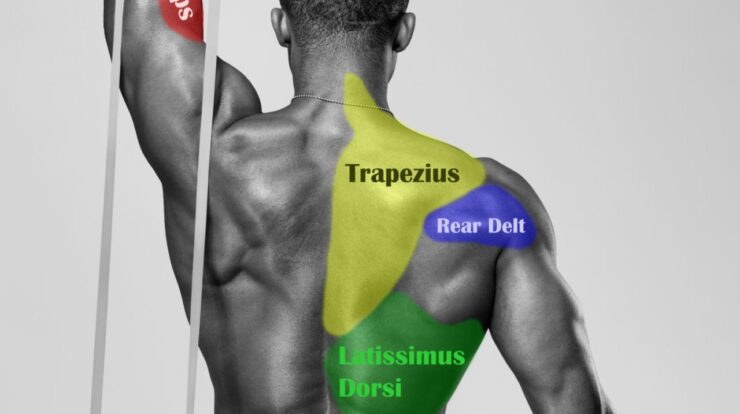
How to cure gum disease without a dentist – Yo, check it! If you’re down with gum disease, don’t trip, ’cause this guide’s got your back. We’re about to drop some knowledge bombs on how to heal your gums without hitting up the dentist. Get ready for a deep dive into home remedies, oral hygiene secrets, and lifestyle hacks that’ll leave your gums lit.
But hold up, fam. This ain’t no ordinary guide. We’re keepin’ it real with the facts and throwing in some dope tips that’ll make you feel like a pro. So, grab your toothbrush, floss, and let’s get this gum disease party started!
Home Remedies for Gum Disease: How To Cure Gum Disease Without A Dentist

Gum disease, also known as periodontal disease, is a common problem that can lead to serious health issues if left untreated. Fortunately, there are a number of effective home remedies that can help to prevent and treat gum disease.
Yo, check it, if your gums be actin’ up, don’t sweat it, fam. How to cure gum disease without a dentist got you covered. No need to hit up the doc, just follow these sick tips and your pearly whites will be poppin’ in no time.
Stay fresh, my dudes!
One of the best ways to prevent gum disease is to maintain good oral hygiene. This includes brushing your teeth twice a day, flossing daily, and using a mouthwash. In addition to good oral hygiene, there are a number of natural remedies that can help to keep your gums healthy.
Herbs
- Aloe vera:Aloe vera has anti-inflammatory and antibacterial properties that can help to soothe and heal gum tissue. You can apply aloe vera gel directly to your gums or use it as a mouthwash.
- Green tea:Green tea contains antioxidants that can help to protect your gums from damage. You can drink green tea or use it as a mouthwash.
- Echinacea:Echinacea is an herb that has immune-boosting properties. It can help to fight off infections that can lead to gum disease.
Essential Oils
- Tea tree oil:Tea tree oil has antibacterial and antifungal properties that can help to fight off gum disease. You can add a few drops of tea tree oil to your toothpaste or mouthwash.
- Peppermint oil:Peppermint oil has anti-inflammatory and antibacterial properties that can help to soothe and heal gum tissue. You can add a few drops of peppermint oil to your toothpaste or mouthwash.
- Clove oil:Clove oil has antibacterial and analgesic properties that can help to relieve pain and inflammation in the gums. You can add a few drops of clove oil to your toothpaste or mouthwash.
Other Natural Ingredients
- Baking soda:Baking soda is a natural abrasive that can help to remove plaque and bacteria from the teeth and gums. You can brush your teeth with baking soda or use it as a mouthwash.
- Salt:Salt is a natural antiseptic that can help to kill bacteria in the mouth. You can rinse your mouth with salt water or use it as a mouthwash.
- Hydrogen peroxide:Hydrogen peroxide is a natural bleaching agent that can help to whiten teeth and kill bacteria in the mouth. You can use hydrogen peroxide as a mouthwash.
In addition to these home remedies, there are a number of lifestyle changes that you can make to help prevent and treat gum disease. These include:
- Eating a healthy diet
- Getting regular exercise
- Quitting smoking
- Reducing stress
If you have gum disease, it is important to see a dentist for treatment. However, these home remedies can help to prevent and treat gum disease and keep your gums healthy.
Oral Hygiene Practices for Gum Health
Yo, peeps! Let’s dive into the basics of keepin’ your gums healthy without droppin’ a dime at the dentist’s crib. First up, let’s talk about brushin’ and flosin’ like a boss.
Proper Brushing and Flossing Techniques
When you’re brushin’, make sure you’re gettin’ at every nook and cranny of your teeth. Hold that brush at a 45-degree angle to the gum line and scrub away in small, circular motions. Don’t forget to brush the insides, outsides, and tops of your teeth.
And don’t be a slacker – brush for at least two minutes twice a day.
Flossin’ is just as important as brushin’. It gets rid of all the nasty stuff that your toothbrush can’t reach. Floss between every single tooth, and don’t just shove it in and out. Curve the floss around the base of each tooth and move it up and down gently to clean the sides.
Regular Dental Checkups and Professional Cleanings
Even if you’re a brushin’ and flosin’ fiend, you still need to hit up the dentist for regular checkups and cleanings. They’ll be able to spot any early signs of gum disease and give you a deep clean that your toothbrush can’t provide.
Selecting the Right Toothpaste and Mouthwash
When you’re pickin’ a toothpaste, look for one that contains fluoride. Fluoride helps strengthen your teeth and protect them from cavities. You can also opt for a toothpaste that’s specifically designed for gum health, which may contain ingredients like baking soda or triclosan.
Yo, check it, if your gums are acting up, don’t trip. There’s ways to handle it without dropping mad cash on a dentist. Peep this sick link: how to cure gum disease without a dentist . It’s got all the dope on how to keep your pearly whites sparkling without breaking the bank.
Mouthwash can be a great way to freshen your breath and kill bacteria. But be careful not to overdo it. Rinsing with mouthwash too often can actually damage your teeth.
Lifestyle Modifications for Gum Disease

Gum disease, also known as periodontal disease, is a common problem that can lead to serious health issues if left untreated. While there are many factors that can contribute to gum disease, some of the most common include poor oral hygiene, smoking, and certain medical conditions.
However, there are also a number of lifestyle changes that can help to prevent and treat gum disease.One of the most important things you can do to improve your gum health is to eat a healthy diet. A diet that is rich in fruits, vegetables, and whole grains can help to strengthen your immune system and reduce your risk of developing gum disease.
In addition, it is important to limit your intake of sugary foods and drinks, as these can contribute to the formation of plaque.Smoking is another major risk factor for gum disease. Smoking damages the tissues in your mouth, making them more susceptible to infection.
If you smoke, quitting is one of the best things you can do for your overall health, including your gum health.Stress can also contribute to gum disease. When you are stressed, your body produces hormones that can break down the tissues in your mouth.
This can make it easier for bacteria to enter your gums and cause infection. There are a number of things you can do to manage stress, such as exercise, yoga, or meditation.
Dietary Changes for Gum Health
- Eating a healthy diet is one of the best ways to improve your overall health, including your gum health. A diet that is rich in fruits, vegetables, and whole grains can help to strengthen your immune system and reduce your risk of developing gum disease.
- In addition, it is important to limit your intake of sugary foods and drinks, as these can contribute to the formation of plaque. Plaque is a sticky film of bacteria that can build up on your teeth and gums. If plaque is not removed regularly, it can harden into tartar, which can irritate your gums and cause them to become inflamed.
Impact of Smoking and Stress on Gum Disease
- Smoking is one of the major risk factors for gum disease. Smoking damages the tissues in your mouth, making them more susceptible to infection. If you smoke, quitting is one of the best things you can do for your overall health, including your gum health.
- Stress can also contribute to gum disease. When you are stressed, your body produces hormones that can break down the tissues in your mouth. This can make it easier for bacteria to enter your gums and cause infection.
Tips for Managing Stress and Quitting Smoking to Improve Gum Health
- There are a number of things you can do to manage stress, such as exercise, yoga, or meditation. Exercise is a great way to reduce stress and improve your overall health. Yoga and meditation can also help to reduce stress and promote relaxation.
Yo, check this out! If you’re dealing with some nasty gum disease, don’t freak. You don’t need to hit up a dentist to get it sorted. There are some sick ways you can handle it at home. Head on over to this link to get the lowdown on how to cure gum disease without a dentist.
It’s got all the tricks you need to get your gums back on track.
- If you smoke, quitting is one of the best things you can do for your overall health, including your gum health. There are a number of resources available to help you quit smoking, such as support groups, counseling, and medication.
Early Detection and Prevention of Gum Disease

Gum disease, also known as periodontal disease, is a common oral health issue that can lead to serious problems if left untreated. The early stages of gum disease are often painless, making it important to be aware of the signs and symptoms to enable early detection and prevention.
Regular self-examinations and professional screenings are essential for detecting gum disease in its early stages. Self-examinations involve checking for any changes in the appearance of your gums, such as redness, swelling, or bleeding. Professional screenings involve a thorough examination of your gums and teeth by a dentist or dental hygienist, who can assess the health of your gums and identify any signs of disease.
Preventing Gum Disease
Preventing gum disease is essential for maintaining good oral health. Proper oral hygiene and lifestyle choices can help to reduce your risk of developing gum disease.
- Brush your teeth twice a day:Brushing your teeth twice a day with a fluoride toothpaste helps to remove plaque and bacteria from your teeth and gums.
- Floss daily:Flossing helps to remove plaque and bacteria from between your teeth, where your toothbrush can’t reach.
- Eat a healthy diet:Eating a healthy diet that is low in sugar and processed foods can help to reduce your risk of developing gum disease.
- Avoid smoking:Smoking is a major risk factor for gum disease. Quitting smoking can help to improve your oral health and reduce your risk of developing gum disease.
- See your dentist regularly:Regular dental checkups and cleanings can help to prevent gum disease and other oral health problems.
Treatment Options for Advanced Gum Disease
Advanced gum disease, also known as periodontitis, is a severe infection of the gums and underlying bone. It can lead to tooth loss and other serious health problems if left untreated. There are several treatment options available for advanced gum disease, each with its own benefits, risks, and recovery process.
Scaling and Root Planing
Scaling and root planing is a non-surgical procedure that involves removing plaque and tartar from the teeth and roots. It is typically the first line of treatment for advanced gum disease. Scaling is the process of removing plaque and tartar from above the gum line, while root planing is the process of removing plaque and tartar from below the gum line.
Scaling and root planing can be done with hand instruments or with ultrasonic devices. The procedure usually takes several appointments to complete, and it may be necessary to take antibiotics before or after the procedure to prevent infection.
Antibiotics, How to cure gum disease without a dentist
Antibiotics may be prescribed to treat advanced gum disease if the infection is severe. Antibiotics can help to kill bacteria that cause gum disease and prevent the infection from spreading. Antibiotics are typically taken orally, but they may also be applied directly to the gums in the form of a gel or ointment.
Yo, if your gums be buggin’ you, don’t sweat it, dawg. You ain’t gotta drop mad dough on a dentist. Check out this crib, it’s got the lowdown on how to cure gum disease without a dentist. It’s like, the ultimate guide to keepin’ your pearly whites healthy, son.
Antibiotics are usually effective in treating gum disease, but they can cause side effects such as nausea, vomiting, and diarrhea.
Surgery
Surgery may be necessary to treat advanced gum disease if scaling and root planing and antibiotics are not effective. Surgery can involve removing diseased tissue, repairing damaged bone, and grafting new tissue to the gums. Surgery can be performed under local anesthesia or general anesthesia, depending on the severity of the gum disease.
The recovery process from surgery can take several weeks, and it is important to follow the dentist’s instructions carefully to prevent infection.
Post-Treatment Care and Maintenance
After treatment for advanced gum disease, it is important to follow a good oral hygiene routine to prevent the gum disease from recurring. This includes brushing your teeth twice a day, flossing daily, and using an antibacterial mouthwash. It is also important to see your dentist regularly for checkups and cleanings.
Regular checkups will allow your dentist to monitor your gum health and catch any signs of gum disease early on.
Final Conclusion
Yo, we’ve covered everything you need to know about curin’ gum disease without a dentist. From home remedies to lifestyle changes, we’ve got you covered. Remember, prevention is key, so stay on top of your oral hygiene game and keep that smile bright.
And if things get serious, don’t hesitate to hit up a dental pro. Stay healthy, keep your gums happy, and spread the word!
Detailed FAQs
Can I cure gum disease at home?
Yes, in its early stages, you can manage gum disease at home with proper oral hygiene, natural remedies, and lifestyle changes.
How long does it take to cure gum disease without a dentist?
The time it takes to cure gum disease without a dentist depends on the severity of the condition and your consistency with home remedies and oral hygiene practices.
What are the best home remedies for gum disease?
Effective home remedies include saltwater rinses, tea tree oil, baking soda, turmeric, and aloe vera.
Can gum disease go away on its own?
In the early stages, gum disease can improve with proper oral hygiene and home remedies. However, if left untreated, it can progress and require professional treatment.





